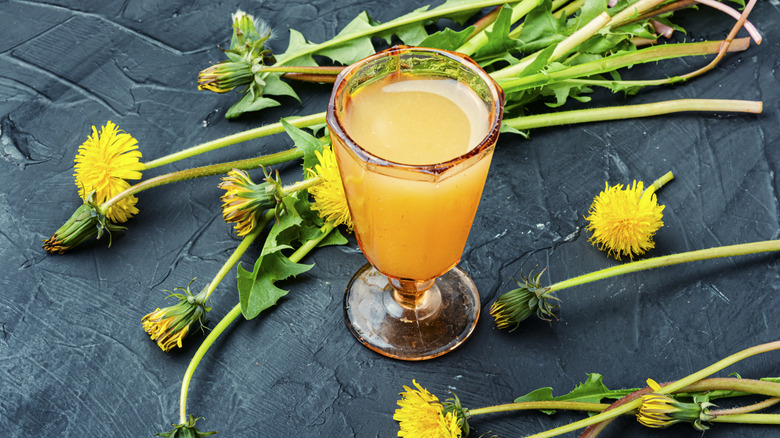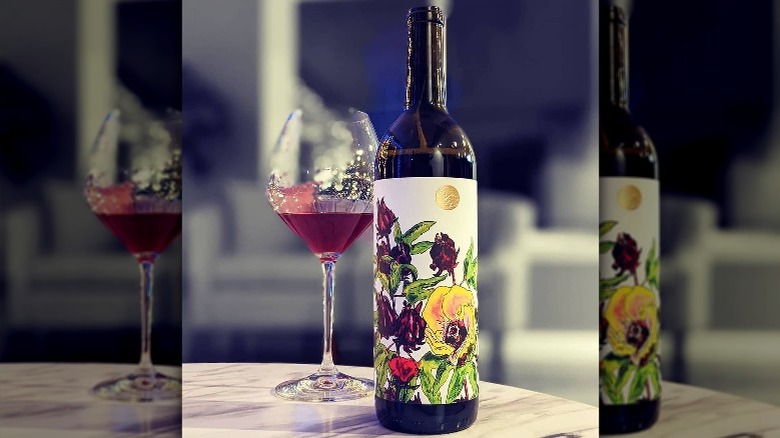The California Winery That Uses Flowers Instead Of Grapes
It's time to polish up your daisy chain skills, pack some tea cakes in a picnic basket, and head to the park: This spring, you are going to start drinking flower wine. Out in California, Aaliyah Nitoto, founder of Free Range Flower Winery, is celebrating traditional methods of making wine using flowers like roses, chrysanthemums, lavender, and hibiscus.
During college, Nitoto became interested in winemaking and herbalism and discovered she could make wine out of her favorite flowers, first experimenting with lavender wine. "The process for making wine from flowers is very similar to making wine with grapes," Nitoto told Tasting Table. "It's just the beginning that's different. Flowers get macerated and either hot or cold purified water get added to extract the flowers' essences. After that a carbohydrate is added for the yeast to consume. At this point I treat this just like juice. I check the pH, the brix, and total acidity. The rest of the process is identical to making wine with grapes."
Though flower wines such as dandelion wine or chrysanthemum wine have a long history in the U.S. and a longer history in East Asian countries like China, they have fallen into the backlogs of history. This is primarily because they were traditionally made locally by lower-income women, so they lacked the prestige of upmarket grape wines popular in Europe.
Tradition vs. innovation
Nitoto's interest in herbalism led her to an interest in the medicinal benefits of various flowers, which were historically made into flower wine to preserve their benefits. Dandelion wine, for example, used to be popular in the U.S. as a health tonic and a digestion aid. But its strong, bitter flavor probably explains why other flowers have become more popular for use in flower wine.
To this date, Free Range Flower Winery has produced wines made from lavender, marigold, rose, hibiscus, feijoa (pineapple guava flowers), red clover, and rose hips. Some are seasonal, while others are available year-round, though they have a tendency of selling out. While a few other wineries, such as Wild Wines in Oregon, make more traditional fruit and flower wines from things like dandelions and elderflowers, Nitoto isn't afraid to experiment. The rosehip wine is the most traditional version of flower wine that she makes, while the others are fresh takes on the drink, bringing an old tradition into a new era.
Nitoto has faced some pushback from the wine industry and faced struggles to legitimize her product, as she explained in an interview with Wine Enthusiast. "The opinion of people in this country over the last 100-odd years to try to get rid of this category doesn't stand up to the history of winemaking, which is thousands of years old, which does call this wine."

